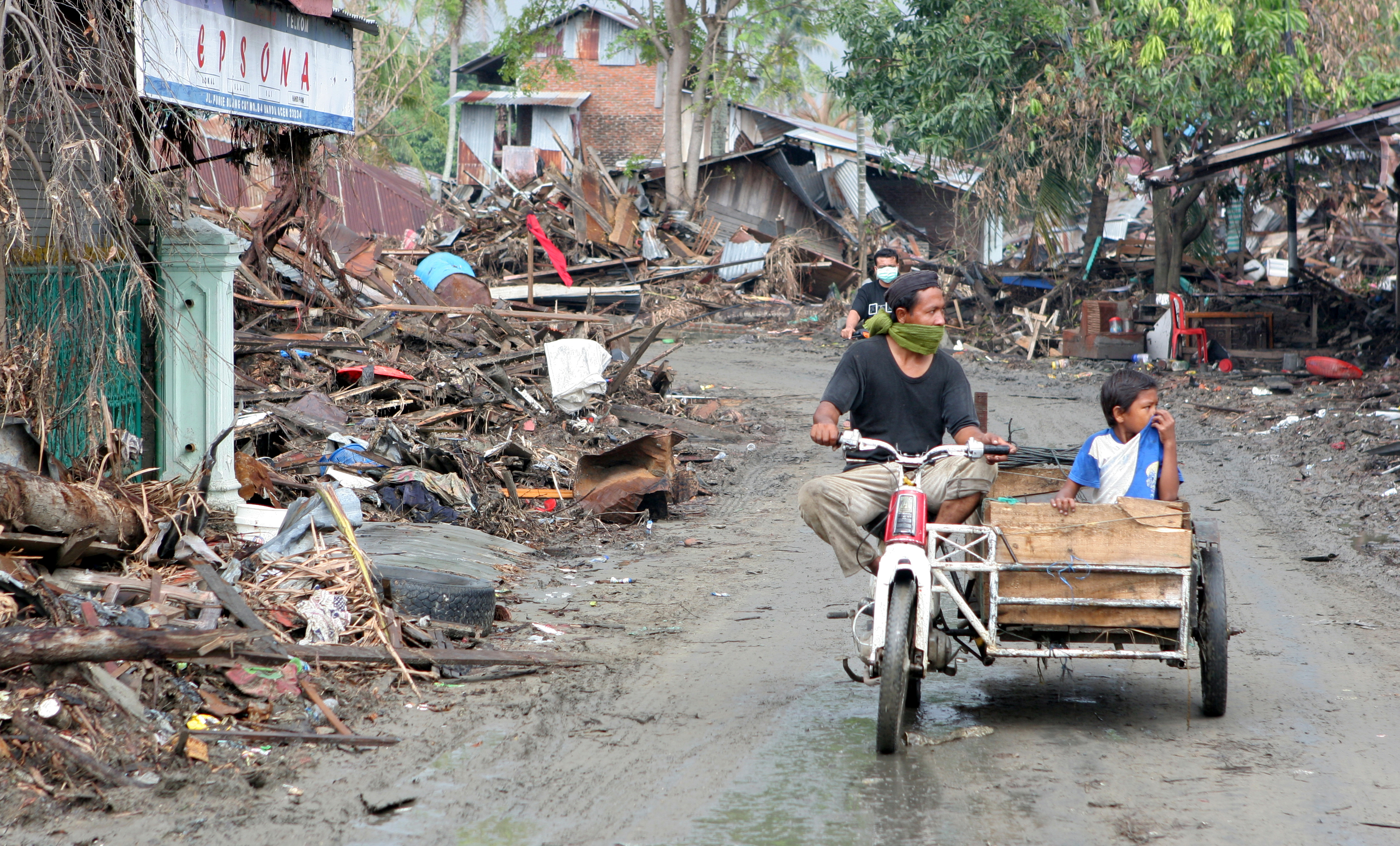
FORT WORTH, Texas (BP)–Matthew Miller was driving on the interstate when a seemingly unremarkable object captured his attention -– a roll of black plastic, perhaps dropped accidentally from the back of a contractor’s vehicle.
The shape of the object, he said, made him think of a devastated nation on the other side of the world. “I thought, ‘There’s another body bag.’ Then I realized I was in Texas, not in Indonesia.”
Thousands of body bags lined the roads in the Asian nation’s Aceh province when Miller arrived there Jan. 11. A Baptist Press photographer and director of photography for Southwestern Baptist Theological Seminary, Miller documented the overwhelming tsunami tragedy and the humanitarian efforts of Southern Baptist disaster relief teams from Oklahoma and Georgia.
Flying to the region, Miller knew he was likely to see things he had never seen before, and never wanted to see again. As his plane was on its final approach to the devastated province, there was only mud to the left and right. There were no houses, no trees, no roads and very few signs of life.
“As we banked to the left and began our approach, people on the plane were looking out the windows and they began to cry openly. No one could believe what they were seeing,” Miller said.
Two weeks after the 9.0 earthquake and tsunami ravaged Aceh, claiming more than 200,000 lives in Indonesia alone, only rubble remained. Heavy equipment was being used to bulldoze paths through what were once houses and shops.
Few people, however, were in the area removing the wreckage. Miller asked his guide, a Christian, where all the people were. “They are all dead,” the guide said.
Two kilometers from the airport, Miller passed a large crater in the ground. The bodies of some 20,000-25,000 people collected by the Indonesian army filled the expanse.
“I have been to the American Airlines Center in Dallas when there was a crowd of 20,000 people. I could barely process the fact that there were that many people in front of me there,” Miller said.
“The number of the tiny body bags is another image that has stayed with me,” Miller said. “I knew that most of the children in Aceh were gone.”
In the midst of the suffering, however, there were lighthearted moments. In a refugee camp away from the coastline remapped by the tsunami, a small crowd of children played in a large pool of water. “When God gives you water, you swim,” one of the children shouted in broken English before jumping into the pool.
There were more smiles on the faces of the people than Miller had expected.
“The joy of simply living still exists. I expected grief and weeping, and there was some of that, but there were people excited to be alive and excited to tell you the story of their survival rather than just how they have suffered,” Miller said. “One man who lost six members of his family just wanted to take me and show me the tree he climbed into to escape the rush of water.”
The members of the disaster relief teams Miller worked alongside were a welcome sight to the people of Aceh. Beyond helping to fill a void too big for any one country or organization to address, Miller said the volunteers were seeing opportunities to fill a spiritual void in the survivors’ lives by embodying the love of Jesus Christ.
In Indonesia’s foremost newspaper, Kompas, Abdul Munir Mulkhan, an instructor at the State Islamic University Sunan Kalijaga in Yogyakarta, wrote in mid-January: “A number of community groups in Australia, Canada, America and other western nations are unceasingly raising funds for the tsunami victims on their own initiative. While many western nations are pouring forth dollars, sending soldiers, heavy machinery and military, we hear little about such action from rich Muslim nations.”
Delivering the aid without delivering the love of Christ was impossible, Miller said. Each of the men on the Oklahoma and Georgia disaster relief teams was the presence of Christ in the care they provided to survivors, he said. Oklahoman Sam Porter and Georgian Jim Richardson, both leaders in men’s ministry in their respective states, headed the teams.
“People were there to help from all walks of life,” Miller said. “There were specialists such as trauma surgeons, dentists, backhoe operators and even a veterinarian. It’s not every day that you see a vet filling prescriptions for a trauma surgeon or when a backhoe operator becomes a dental assistant.”
Miller asked one of the doctors if he ever thought he would be doing something like this.
“Matt, when I was 14 years old, I dreamed of doing just this,” the doctor said, reflecting the readiness in his heart that had propelled his trip to Aceh to help those in need.
Miller said that he still thinks about the open door to Aceh created by the tsunami: “Everyone knows that the door has been closed to Banda Aceh for 50 years, ever since Indonesia gained its independence. We have prayed so long for this door to be open. Now it is.”
–30–

















